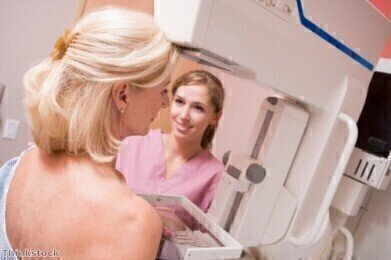-
 Women could avoid life-changing surgery thanks to available drugs
Women could avoid life-changing surgery thanks to available drugs
Bioanalytical
Drug therapy could help BRCA1 carriers
Mar 30 2014
Women that are at high risk of developing ovarian or breast cancer could be saved having to go through devastating preventative measures thanks to a new breakthrough. Researchers at Queen's University Belfast's Centre for Cancer Research and Cell Biology (CCRCB) have discovered that drugs could be used to lower the chances of women developing the diseases, helping to avoid irreversible surgery.
Around one in every 1,000 UK women carry the BRCA1 mutation, which means they are at higher risk of developing breast and ovarian cancer. These women have an 85 per cent chance of developing breast cancer and around a 40 per cent chance of being diagnosed with ovarian cancer.
Preventative surgery has been the only option for those wishing to reduce their chances of developing the diseases, meaning that many women have opted to undergo life-changing oophorectomy and mastectomy procedures.
However, researchers have found that chances could be lowered by treating women that carry the mutation with drugs that are already available. A study has found that there is a link between DNA damage and high oestrogen levels, which results in both breast and ovarian cancer.
Women that carry the BRCA1 mutation were found to be unable to fight off the high levels of oestrogen that exist within the ovaries and breasts of all women, making them sensitive to DNA damage. This link has long been suspected but this is the first time it has been proven.
Dr Kienan Savage, leader of the research, said: "This discovery is very significant in the management of women with the BRCA1 gene mutation. It’s the first really credible evidence that oestrogen is driving cancer in women with a BRCA1 gene mutation. Because of this discovery, we now have the opportunity to propose an alternative treatment to surgery. It also opens up the possibility of pausing treatment for a period in order for women to have children, if desired."
There are already drugs available that switch off a woman's production of oestrogen, meaning they could be easily accessed by those women that carry the BRCA1 mutation.
Digital Edition
Chromatography Today - Buyers' Guide 2022
October 2023
In This Edition Modern & Practical Applications - Accelerating ADC Development with Mass Spectrometry - Implementing High-Resolution Ion Mobility into Peptide Mapping Workflows Chromatogr...
View all digital editions
Events
Jan 20 2025 Amsterdam, Netherlands
Feb 03 2025 Dubai, UAE
Feb 05 2025 Guangzhou, China
Mar 01 2025 Boston, MA, USA
Mar 04 2025 Berlin, Germany













